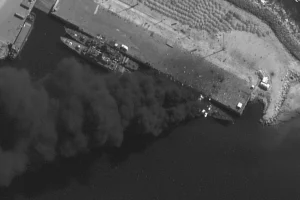Hamas Violates Ceasefire After Hostage Release: Deception in Gaza

People gather during the search for the bodies of deceased hostages, kidnapped by Hamas during the October 7, 2023, attack on Israel, amid a ceasefire between Israel and Hamas, in Khan Younis, southern Gaza Strip, October 28, 2025. REUTERS/Haseeb Alwazeer
By Robert Chernin
Israel celebrated on Oct. 10, 2025, after months of anguish as the final hostages were released under a ceasefire agreement. The nation exhaled in relief, marking a moment of profound joy amid ongoing conflict. However, this truce was only the first phase of a complex arrangement, with additional commitments still to be fulfilled.
Hamas, which had agreed to hand over 28 hostages, quickly violated the terms, using the pause in fighting to reposition fighters and rebuild capabilities. The ceasefire, far from signaling peace, became a tactical maneuver for the group. This pattern mirrors past actions, where Hamas has exploited temporary agreements to advance its long-term goals.
The organization’s strategy is rooted in deception, balancing public diplomacy with covert aggression. While Hamas publicly acknowledges ceasefires, its rhetoric within Gaza emphasizes an “endless struggle” against Israel. Similarly, Iran, a key supporter, engages in diplomatic talks while funding terror operations and expanding missile programs.
Hamas did not release hostages out of moral conviction but to gain political leverage, pressuring Israel to limit military actions. The group has already framed the releases as proof that kidnappings are effective, even as it prepares for future attacks. Israel must respond with both gratitude and vigilance, ensuring compliance with agreements while remaining prepared for further conflict.
Peace in the region cannot be secured through trust alone. Deceit by terrorist organizations like Hamas demands scrutiny, enforcement, and consequences. Without accountability, agreements will continue to serve as temporary pauses rather than lasting solutions.
Families reunited after years of uncertainty, but the path forward requires constant monitoring. Any failure to address Hamas’s tactics risks repeating cycles of violence. The lesson is clear: optimism must be tempered with verification, and strength must counter aggression.
Robert Chernin is a business leader, political adviser, and podcast host. He has consulted on presidential and congressional campaigns and serves as chairman of several organizations focused on education and international relations.







